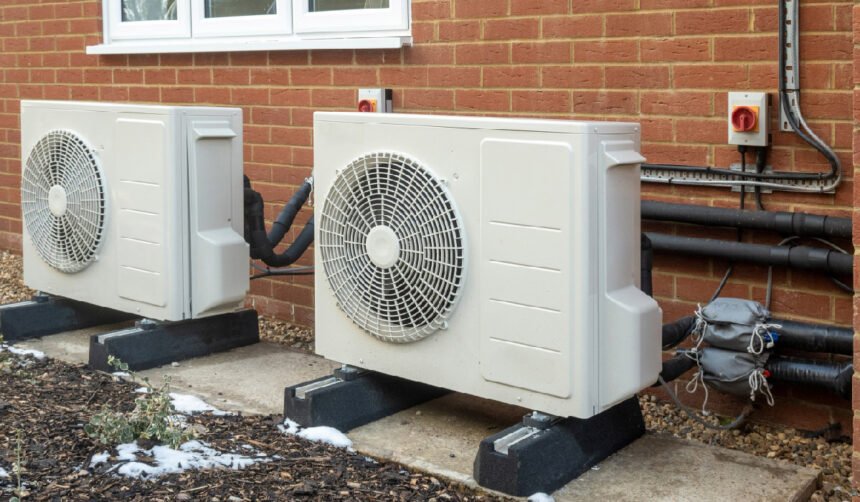In today’s world of energy-efficient heating and cooling solutions, heat pumps have earned a solid reputation as a reliable, sustainable option for year-round comfort. They offer the unique ability to both heat and cool a home, making them a popular alternative to traditional HVAC systems that rely on separate heating and air conditioning units.
However, like all mechanical systems, heat pumps have a finite lifespan. Over time, wear and tear can reduce efficiency, performance, and reliability. When that time comes, replacing your unit isn’t just about comfort—it’s about saving money, improving indoor air quality, and ensuring consistent, dependable climate control.
Understanding when a heat pump replacement is necessary, what it involves, and how to make informed choices is essential for homeowners and property managers alike. This guide will walk you through the key signs of an aging unit, the benefits of upgrading, the selection process, and what to expect during and after installation.
What Is a Heat Pump?
Before diving into replacement, it’s helpful to understand how heat pumps work. A heat pump is a system that transfers heat from one place to another. During the colder months, it pulls heat from the outside air and transfers it indoors to warm your home. In the warmer months, it reverses this process, extracting heat from inside and releasing it outside to cool the interior.
Because they move heat rather than generate it, heat pumps are highly efficient, especially in moderate climates. They typically operate on electricity and can significantly lower utility bills compared to furnaces or baseboard heaters.
There are various types of heat pumps—air-source, ground-source (geothermal), and ductless mini-split systems—each designed for different home configurations and efficiency needs.
Lifespan and Common Problems
On average, a well-maintained heat pump can last between 10 to 15 years. However, several factors can shorten or extend that lifespan, including climate, maintenance habits, installation quality, and daily usage.
Here are common signs that a heat pump replacement may be on the horizon:
1. Declining Efficiency
If your energy bills have started to climb without a corresponding increase in usage, it could be a sign your unit is working harder to achieve the same level of comfort. As internal components wear down, performance decreases, and electricity consumption increases.
2. Frequent Repairs
One or two repairs over several years is normal. But if you’re calling your HVAC technician more often, especially for major component issues like the compressor or reversing valve, it might be time to consider a full replacement.
3. Uneven Heating or Cooling
Older units can struggle to maintain consistent temperatures throughout the home. You may notice hot or cold spots in certain rooms, or the unit may take longer to reach the desired temperature.
4. Unusual Noises
Grinding, squealing, or banging sounds are often signs of mechanical failure. While some issues can be fixed, persistent or escalating noises could mean that internal components are breaking down and replacement is more cost-effective than repair.
5. Use of Outdated Refrigerants
Some older systems use refrigerants like R-22, which have been phased out due to environmental concerns. Servicing these units becomes increasingly difficult and expensive over time, making replacement a more practical solution.
Benefits of Upgrading Your System
Choosing a new heat pump system isn’t just a necessity—it’s an opportunity to improve your comfort and lower long-term operating costs.
Enhanced Efficiency
Modern heat pumps are significantly more energy-efficient than older models. Many new systems feature variable-speed compressors, advanced thermostats, and better insulation. This can translate to substantial savings on your monthly energy bills.
Improved Air Quality
Newer units offer better air filtration and humidity control. This is especially important for households with allergy sufferers, pets, or in areas where outdoor air quality is a concern.
Quieter Operation
Advancements in motor and fan technology have made today’s heat pumps much quieter. If noise has been a concern with your aging system, a new installation can bring noticeable relief.
Environmentally Friendly
Upgrading to a new system means using more eco-friendly refrigerants and less overall energy, reducing your household’s environmental impact.
Increased Property Value
An efficient, modern HVAC system can enhance the resale value of your home. It’s one of the upgrades that buyers tend to value highly because it’s directly tied to comfort and utility costs.
Choosing the Right System
Selecting the right unit involves more than just picking the latest model. Several factors must be considered to ensure you get a system that meets your home’s specific needs.
Sizing Matters
A system that’s too large will cycle on and off too frequently, leading to wear and inefficiency. One that’s too small won’t keep your space comfortable. A professional HVAC technician will perform a load calculation to determine the appropriate size for your home.
Type of System
- Air-source heat pumps are the most common and ideal for a wide range of climates.
- Geothermal systems cost more upfront but offer long-term savings through higher efficiency.
- Ductless mini-splits are perfect for homes without existing ductwork or for room-by-room temperature control.
Features and Technology
Look for features such as variable-speed motors, smart thermostat compatibility, and noise-reducing technology. Many modern systems also offer remote monitoring and control via smartphone apps.
Energy Ratings
Pay attention to the SEER (Seasonal Energy Efficiency Ratio) and HSPF (Heating Seasonal Performance Factor) ratings. Higher numbers indicate better efficiency. Investing in a high-efficiency system might cost more initially but pays off in energy savings.
What to Expect During Heat Pump Replacement
Understanding the replacement process can help reduce stress and ensure the project goes smoothly.
1. Initial Consultation
A qualified HVAC contractor will inspect your current system, discuss your comfort needs, and offer recommendations. They’ll also check your ductwork (if applicable), electrical system, and insulation.
2. Removal of Old Unit
Once the new system is selected, the technician will safely remove and dispose of the old heat pump, taking care to follow environmental regulations, especially regarding refrigerant disposal.
3. Installation
The new system will be installed, which includes connecting it to your ductwork or setting up indoor units for ductless systems, wiring the electrical components, and configuring the thermostat. Depending on the complexity, this process may take a full day or more.
4. Testing and Calibration
After installation, the system will be thoroughly tested to ensure it runs correctly, reaches the right temperatures, and operates efficiently. The technician will walk you through the controls and provide maintenance recommendations.
Post-Installation Considerations
Once your new unit is installed, regular care will ensure it performs at its best for years to come.
Maintenance Tips
- Change filters every 1–3 months.
- Schedule professional inspections at least once per year.
- Keep outdoor units free of debris, leaves, or snow.
- Monitor for any unusual sounds or performance changes.
Warranty and Service Agreements
Most new systems come with warranties covering parts and, in some cases, labor. Consider purchasing a service plan that includes regular maintenance and discounts on future repairs.
Making the Right Investment
A heat pump replacement is a significant investment, but one that can offer excellent returns in comfort, cost savings, and long-term reliability. It’s important to approach the process informed and prepared.
Start by working with reputable professionals who will assess your needs honestly and guide you to the right system. Don’t focus solely on the initial cost—evaluate lifetime operating expenses, efficiency ratings, and available rebates or incentives.
Also, be mindful of how your home’s insulation, windows, and air sealing affect heating and cooling efficiency. In some cases, simple upgrades to your building envelope can enhance the performance of your new heat pump even more.
Conclusion
Knowing when it’s time for a heat pump replacement is about more than reacting to failure. It’s about recognizing the signs of aging equipment, understanding the advantages of modern systems, and taking action to improve your home’s overall energy efficiency and comfort.
With careful planning, a professional installation, and a commitment to ongoing maintenance, a new heat pump can serve your home for well over a decade—offering year-round performance that saves you money and supports a more sustainable lifestyle.
Whether you’re dealing with an aging unit or looking to upgrade your entire HVAC system, now may be the perfect time to consider heat pump replacement as a smart, future-focused solution.
For More Information, Visit Dotmagazine









